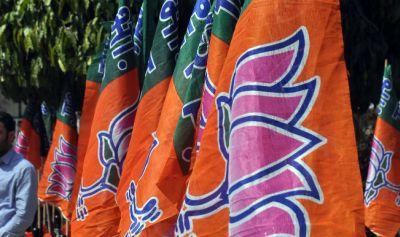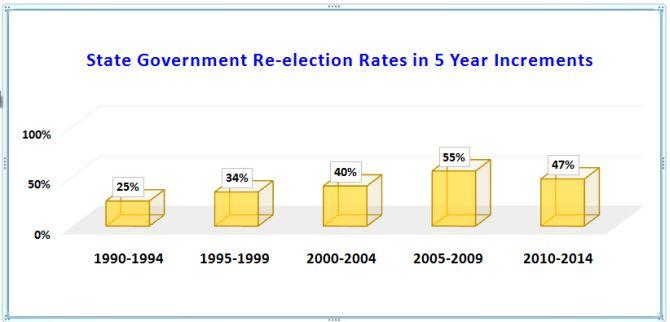 The last 25 years of Indian democracy have shown that anti-incumbency in state elections is on the decline.
The last 25 years of Indian democracy have shown that anti-incumbency in state elections is on the decline.
This is a positive trend because continuous terms will allow political parties to look beyond single-term policies and focus on long-term development, says Richard M Rossow.
Discussions about India's state elections must necessarily include a reference to the all-powerful 'anti-incumbency factor'. This is a reference to the belief that since the Congress Party lost its dominance atop Indian politics in the 1970s, Indian voters have rarely rewarded state governments with consecutive terms. The stability of state governments is a crucial consideration as the debate heats up over devolving more powers to states.
Greater devolution could allow states to initiate reforms on their own and experiment with new policies. But it is difficult to make the case of states serving as test tubes for reform until we actually see more state governments use their existingpowers responsibly.
Higher re-election rates could very well have a positive impact on governance -- allowing state governments to look beyond a single term when developing policy priorities.
Remarkably low re-election percentages in the past meant that state governments could not expect that they would be in power for a second term. During one particularly low point, in 1990 and 1991 India had a total of 17 state elections. In these 17 elections, only three incumbent governments won re-election.
In this environment, policy making focused on programmes that would result in tangible near-term gains to voters, the quick enrichment of political leaders, or both. Projects which had long gestation periods were not prioritised.

State government terms are five years (except Jammu & Kashmir, which has a six year term), so it is helpful to look at their electoral fortunes in five year increments. In the period from 1990 to 1994 state governments had a re-election rate of only 25 per cent.
In the most recent five year period from 2010 to 2014, state governments had a much higher re-election rate at 47 per cent, though this declined a bit from the 2005 to 2009 period.
As a comparison, a report by Rutgers University's Centre on the American Governor shows that state governors in the US have enjoyed a 78.22 per cent re-election rate from 1980 to 2013.
While no elected official can ignore the attraction of looking for short-term political gains, higher re-election rates allow US governors some flexibility to balance short-term interests with planning for longer-term growth.
The Bharatiya Janata Party's electoral surge has brought down the re-election rates of regional parties (Maharashtra to name one) in the most recent period. Looking back to the end of 2005, Congress held 15 states to the BJP's six. Today Congress holds nine states to the BJP's eight.
Still, over the course of the last 25 years, the trend-line shows a much greater proclivity towards stable governance, especially so in the cases of Gujarat, Madhya Pradesh and Chhattisgarh, which have seen the incumbent BJP-led government get re-elected twice.
Of course, not every state has seen increasing stability. In particular a number of states have not seen a government win re-election in decades including Tamil Nadu (the last incumbent to win was in 1984), Goa (1994), Kerala (1982), Himachal Pradesh (1985), and Uttar Pradesh (1985).
However, 14 states currently have governments in (at least) their second terms.
If this trend of higher re-election rates continues, or at least stabilises, more state governments may become more willing to focus policymaking on reforms with longer gestation periods like utilities and other infrastructure projects. Only then could states truly become the laboratories for reform.
Richard M Rossow holds the Wadhwani Chair in US India Policy Studies at the The Center for Strategic & International Studies, Washington, DC.
This feature was first published by Gateway House. The article is republished with kind permission.










